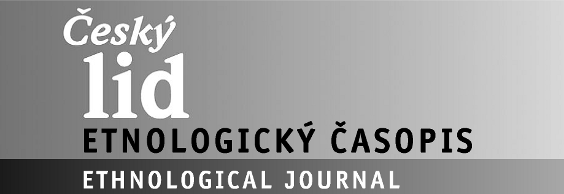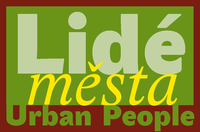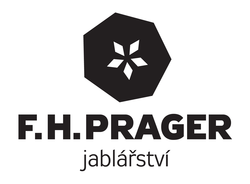We would like to invite you to Echos of Antropofest to Bratislava. It will take place at Cafe Satori Stage, 8th May at 6p.m. You can watch Girl, are you married?, Searching for the Exit and Ivonče. Directors of these movies will be present.
INTRODUCTION
Antropofest is an international festival of movies with social anthropological themes.
Festival is held by eponymous NGO, formed by social anthropology graduates. The goal of the festival is to introduce the general audience to the movies that could also be one of the important study instruments of our domain. These specific documents will allow us to learn about the life of various human communities, social groups or individuals around the world.
During the festival we will hold debates on current projections and there will be also other accompanying programme.
We are looking forward to you!
NEWS
We would like to invite you to Echos of Antropofest to Brno. Wednesday 11th May, 6pm in Kino Art. You can watch GIRL, ARE YOU MARRIED?, PASTEVCI LAHVÍ and SEARCHING FOR THE EXIT. Directors of these movies will be present.
We would like to invite you to "Echoes of Antropofest 2016" to Pardubice. It will take place in Divadlo 29, 15th March from 6.30 p.m. We will screen this movies: Searching for the Exit, Ivonče, Kytice and Haight Love.
Firts "Echoes of Antropofest" in abroad will take place 15th March from 4p.m. in Department of Ethnology and Folklore studies University of Nitra. Searching for the Exit, Girl,are you married and Pastevci lahví will be screened.
„You don´t want to leave it, but you must“ is name of exhibition of photographs from balkan refugee migration route taken by Michal Pavlásek. The exhibition will take place in Bio OKo. Preview with author starts on Friday 29th JAN from 6 p.m. Free entrance.
SCHEDULE
29.01.2016
| 18:00 | VÝSTAVA „Nechceš to všechno opustit, ale musíš" |
| 18:20 | Opening Ceremony |
| 18:25 | MARIE´S DICTIONARY |
| 18:35 | THE LAST REFUGE: FOOD STORIES FROM MYANMAR TO COFFS HARBOUR |
| 19:00 | SEARCHING FOR THE EXIT |
| 19:25 | Discussion |
| 20:05 | ECO DE FEMMES |
| 20:35 | Break |
| 20:45 | ROARING ABYSS |
30.01.2016
| 16:00 | IVONČE |
| 16:20 | PASTEVCI LAHVÍ |
| 17:10 | Discussion |
| 17:30 | BETWEEN MEMORIES |
| 18:00 | TO WORK IS TO GROW |
| 18:30 | Discussion |
| 18:50 | KYTICE |
| 19:20 | Break |
| 19:30 | GIRL, ARE YOU MARRIED? |
| 20:20 | Discussion |
| 20:45 | HAIGHT LOVE |
| 21:00 | Discussion |
| 21:25 | UNDER THE PALACE WALL |
MOVIES
TO WORK IS TO GROW
Norsko, 2015, 32 min
Léa Klaue
30.01.2016 18:00
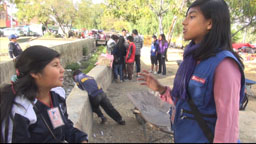 Gerald, Ruben, Neysa and their friends are children and adolescents who work as wheelbarrow pushers at a market and as prayer boys in a cemetery in the region of Cochabamba in Bolivia. With their own labor union – the Bolivian working children's union UNATsBO - they will present their ideas and defend their right to work in front of the parliament, where a new legislature concerning working children is decided. "To work is to grow" presents some working children's opinion about child labour, but also these children's actual work. Work becomes a tool to empower and grow – through one's good as well as one's bad moments.
Gerald, Ruben, Neysa and their friends are children and adolescents who work as wheelbarrow pushers at a market and as prayer boys in a cemetery in the region of Cochabamba in Bolivia. With their own labor union – the Bolivian working children's union UNATsBO - they will present their ideas and defend their right to work in front of the parliament, where a new legislature concerning working children is decided. "To work is to grow" presents some working children's opinion about child labour, but also these children's actual work. Work becomes a tool to empower and grow – through one's good as well as one's bad moments.
Léa was born in 1989 in Bern, grew up in the Swiss Alps where she enjoyed a bilingual education. She completed a Bachelor in Social Anthropology and Media Studies at the Unviversity of Basel and soon knew that she wanted to make films. During this time she travelled many times to Latin America for different reasons, among other to study one semester in Santiago de Chile. Léa completed a Master of Arts in Visual Cultural Studies at the University of Tromsø in Northern Norway with a fieldwork and a film about working children in Bolivia, which is her first film.
Language of dialogues: Spanish
Language of subtitles: English, Czech
Production: University of Tromsø
Camera, script, edit: Léa Klaue
Festivals (selection):
Tromsø, Norway, 2015
Best Graduate Film winner at Society for Visual Anthropology Film Festival, American Anthropological Association Annual Meeting 2015, Denver, USA
Astra Film Festival, 2015, Sibiu, Romania
NAFA Nordic Anthropological Film Association Film festival,2015, Warsaw, Poland
Athens Ethnographic Film Festival, 2015, Athens, Greece
Kratovo Ethnographic Film Festival, 2015, Kratovo, Macedonia
HAIGHT LOVE
USA, 2015, 15 min
Grant Hayes
30.01.2016 20:45
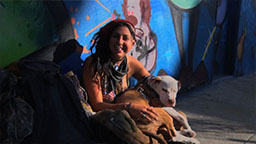 The Haight Ashbury district of San Francisco became a site of historical significance following its central role as the epicenter of the counter-cultural movement in the 1960s. In contemporary times it has transformed into a commercialized tourist attraction that draws on its unique historical context. The Haight Ashbury remains to be a popular congregational place for homeless and transient youth in the United States. The community of youth that gathers here is often at odds with other factions of housed residents and commercial vendors in the district. The Haight's identity is under constant contestation between these commonly opposed groups. The homeless and transient youth population are critiqued in a variety of ways as a result of their lifestyle. Haight Love represents this multifaceted issue and lends an opportunity for the youth themselves to discuss their experiences in order to foster a more compassionate understanding of their lives.
The Haight Ashbury district of San Francisco became a site of historical significance following its central role as the epicenter of the counter-cultural movement in the 1960s. In contemporary times it has transformed into a commercialized tourist attraction that draws on its unique historical context. The Haight Ashbury remains to be a popular congregational place for homeless and transient youth in the United States. The community of youth that gathers here is often at odds with other factions of housed residents and commercial vendors in the district. The Haight's identity is under constant contestation between these commonly opposed groups. The homeless and transient youth population are critiqued in a variety of ways as a result of their lifestyle. Haight Love represents this multifaceted issue and lends an opportunity for the youth themselves to discuss their experiences in order to foster a more compassionate understanding of their lives.
Grant Hayes was born and raised in the state of California in the United States. He is an aspiring Visual Anthropologist currently pursuing his Masters at San Francisco State University in California. Previously he attained his Bachelors degree in Anthropology at San Francisco State University. Grant has a strong inclination toward producing media that mediates between varied antagonistic sets of relationships among groups of people. Grant believes that the value of film in transmitting anthropological critique is its capacity to reach wider audiences and to have greater accessibility. Haight Love is the first and only film he has yet prod uced. Many more are sure to come.
Language of dialogues: English
Language of subtitles: English, Czech
Production, Scipt, Camera, Edit: Grant Hayes
PREMIERE
SEARCHING FOR THE EXIT
Česká republika, 2015, 26 min
Michal Pavlásek
29.01.2016 19:00
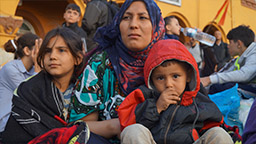 Searching for the exit is a personal documentary insight into one of the most debated topics of today – the forced migration of refugees coming to Europe. The Balkan route is the main migratory gateway into Europe. Having spent several summer weeks among the refugees, the filmmaker had the possibility to build close personal relationships with people coming mostly from Syria, Afghanistan, Iraq, and Pakistan. This recurring pattern of friendship is constantly present in the film thanks to Hussein, a young man from Basra in Iraq who is forced to forget a terrible life tragedy. Hussein’s journey represents a transition between the past and the future, while the filmmaker experiences it as a constant materialization of the uncertainty and dilemmas resulting from his EU citizenship. The passport in his pocket makes him confront his privileged position with the situation of the people he meets during the journey despite the fact that the distance between him and the refugees is often totally erased. The film depicts various encounters and situations from the Balkan route and brings a personal testimony about the border area and state controls, media coverage, volunteer aid, widely spread stereotypes and grey economy. These images and refugee testimonies allow the viewer to experience their journey, get a close up on migration, become a refugee.
Searching for the exit is a personal documentary insight into one of the most debated topics of today – the forced migration of refugees coming to Europe. The Balkan route is the main migratory gateway into Europe. Having spent several summer weeks among the refugees, the filmmaker had the possibility to build close personal relationships with people coming mostly from Syria, Afghanistan, Iraq, and Pakistan. This recurring pattern of friendship is constantly present in the film thanks to Hussein, a young man from Basra in Iraq who is forced to forget a terrible life tragedy. Hussein’s journey represents a transition between the past and the future, while the filmmaker experiences it as a constant materialization of the uncertainty and dilemmas resulting from his EU citizenship. The passport in his pocket makes him confront his privileged position with the situation of the people he meets during the journey despite the fact that the distance between him and the refugees is often totally erased. The film depicts various encounters and situations from the Balkan route and brings a personal testimony about the border area and state controls, media coverage, volunteer aid, widely spread stereotypes and grey economy. These images and refugee testimonies allow the viewer to experience their journey, get a close up on migration, become a refugee.
Michal Pavlásek is researcher in The Institute of Ethnology of the Academy of Sciences of the Czech Republic, v.v.i. Brno. Author is member of Anthropictures - flexible association of social scientists providing independent field research focused on visual and urban anthropology.
production: Czech Television, TPS Petra Kubici.
script, camera, director: Michal Pavlásek
edit: Šárka Sklenářová
assistent of director: Eva Lammelová
Language of dialogues: English, Macedonian, Serbian
Language of subtitles: Czech
PREMIERE
PARTNERS
Partners of AntropoFEST are
- DesignFarm
- Czech Sociological Review
- Český Lid
- Lidé Města
- F. H. Prager - český jablečný cider
- Radio 1
- Prague 7
- 25fps
Thank you!

Akce se koná pod záštitou radní MČ Praha 7 MgA. Hany Třeštíkové.
CONTACT
Don't hesitate and ask us or just send your movie (with apllication form) on email: [email protected]


